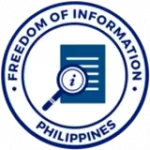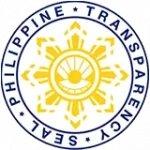Lingkod Pamayanan Para Sa Kapayapaan Program
The Lingkod Pamayanan Program of the Ministry of Social Services and Development (MSSD) is a community service program aimed at mobilizing and deploying para-social workers to support disaster risk reduction and protection activities. The program is part of MSSD’s efforts to strengthen the delivery of social services to marginalized and disadvantaged communities, while also maximizing local capacities and knowledge in various areas such as peace, anti-gender-based violence, and disaster risk reduction.
The rationale behind the program is rooted in the MSSD’s mandate to provide a balanced and responsive approach to social welfare, with a special focus on the marginalized and vulnerable sectors. The program recognizes the importance of mobilizing local resources and volunteers to support the implementation of programs and services, taking into account factors such as access, language, community dynamics, and contextual peculiarities.
The general policies of the program emphasize the need to build on previous experiences of mobilizing local capacities for disaster risk reduction and protective services. MSSD commits to allocating necessary resources, providing technical and administrative support, and conducting capacity development sessions to effectively mobilize community volunteers and improve service delivery.
The program’s objectives are three-fold. Firstly, it aims to contribute to strengthening the delivery of social services to communities by mobilizing local resources. Secondly, it provides opportunities for further development and engagement of community stakeholders through a systematic and purposive community service program. Lastly, it seeks to strengthen partnerships with communities and maximize local capacities and knowledge in various areas, including peace, anti-gender-based violence, and disaster risk reduction.
The program operates through the engagement of para-social workers, who are community service volunteers providing direct support services to ensure the delivery of MSSD social services to communities and program beneficiaries. The para-social workers serve as guides, monitors, links, and partners at the local level to safeguard program implementation integrity and communicate welfare issues to the government and service institutions. They work under the supervision of Municipal Social Welfare Officers (MSWOs) and carry out tasks such as supporting the implementation of disaster risk reduction and protective programs, assisting in protection monitoring and reporting, participating in community preparation and capacity building activities, and providing necessary support and augmentation as needed.
Para-social workers are selected based on specific qualifications and requirements, including being a resident of the assigned area, having basic literacy and communication skills, possessing good moral standing in the community, and being willing to engage in training and capacity-building activities. Certain individuals, such as current Barangay officials, full-time staff of government agencies and organizations, and workers earning above the minimum labor wage, are excluded from participating in the program.
Selected para-social workers receive a monthly stipend starting from Php 3,000.00 to cover mobilization expenses, and they may also receive support for communication and transportation expenses related to their tasks. The MSWOs provide guidance and support to the para-social workers in terms of document submission, recording of accomplishments, and reporting.
The implementation procedures involve the identification of potential para-social worker volunteers by MSWOs, confirmation of acceptance by PSWOs, orientation and training activities, and the provision of subsidies and funds through various modalities, including partnerships with financial service providers and digital payment systems.
Monitoring of the program is conducted by the Provincial Operation Office, with regular quarterly financial and narrative reports submitted to track progress. The sharing of information adheres to the Ministry’s protocols and complies with the Data Privacy Act. The Office of the Minister, through the Monitoring and Evaluation or Internal Control Unit, conducts monitoring activities, implementation reviews, and document examinations to ensure compliance with the program guidelines and design.


